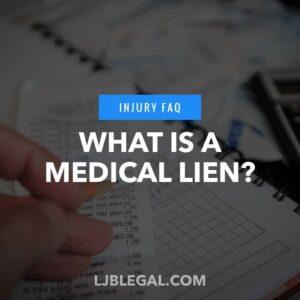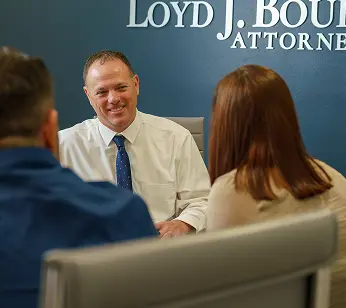
If you are seriously injured in an automobile wreck or another type of incident, you probably need significant medical care. If any medical costs are paid by a health insurer or government benefit plan, those costs must normally be reimbursed from your recovery in settlement or trial. Your Louisiana personal injury lawyer needs to be familiar with this complex area of the law. In Louisiana, if a client seeks treatment after a crash, the hospital and other medical providers can place a lien on the settlement funds obtained. However, if this is the case, we will work with the medical provider to reduce their bill and satisfy any valid lien.
Can My Health Insurance Company Take Part of My Settlement?
If either your own health insurer or the health insurer of your employer’s health plan paid any of your accident-related medical bills, it will likely seek reimbursement out of your personal injury settlement or verdict recovery.
Sometimes the health insurer even hires lawyers to pursue injured accident victims for this recovery if they fail to pay it. This area of the law, known as “reimbursement” or “subrogation,” is quite complicated.
To understand how medical bills are handled in your injury settlement (and whether you’ll have to pay them yourself), see “Do I Have to Pay Medical Bills Out of My Injury Settlement?”


We GET IT DONE
Clients trust us to handle their case properly and effectively
FREE Confidential Case Review (985) 240-9773Can My Health Insurance Put a Lien on My Settlement?
The healthcare insurer’s right of reimbursement or subrogation can be different from case to case depending upon which law applies, as well as the wording of the health insurance policy itself. Your attorney must understand the implications of both ERISA and Louisiana subrogation law on your case to properly represent you and avoid unpleasant surprises when your case is concluded.
If your bills were paid by Medicaid, Medicare, or the United States Government (including Tricare), your attorney must understand the different special laws and procedures under each to determine and negotiate what is owed.
If you are not insured by a health care insurer or government program, and you have unpaid medical bills from a hospital or other health care provider, they are normally entitled to be reimbursed out of your recovery as well. The right of reimbursement will be different for different types of health care providers. The rules that apply to the recovery by ordinary private hospitals or health care providers, for instance, are different from those that apply to state hospitals. Still, different rules apply to the recovery by health plans covering federal employees and military personnel.
Subrogation occurs when a health insurance company requests reimbursement for any claims they have paid relating to your injuries. However, not all subrogation claims are valid. We take the time to determine which subrogation claims are valid. If they are entitled to reimbursement, we work with the health insurance company to reduce their claim out of the settlement funds.


We DO THE RIGHT THING
The correct choice – always – is to do the right thing.
FREE Confidential Case Review (985) 240-9773Understanding the Difference Between Medical Provider Liens and Health Insurance Reimbursement Liens
When you’re injured and pursuing a personal injury claim, it’s crucial to understand the types of liens that may affect your settlement. Two common liens are:
-
Health Insurance Reimbursement Liens (Subrogation Claims): If your health insurance has paid for medical treatments related to your injury, they may seek reimbursement from your settlement. This process is known as subrogation. The insurer’s right to reimbursement depends on the terms of your policy and applicable laws. Unlike medical provider liens, if there’s no settlement, you’re typically not required to repay your health insurer.
- Medical Provider Liens: These are claims by doctors, hospitals, or other healthcare providers who have treated you without immediate payment. Often, they agree to provide necessary treatment with the understanding that they’ll be paid from your settlement. This arrangement is typically formalized through a document known as a “letter of protection.” It’s important to note that if your case doesn’t result in a settlement, you may still be responsible for these medical bills.
Understanding these distinctions is vital. Health insurance reimbursement liens are claims from your insurer seeking to recover funds they’ve already paid on your behalf. Medical provider liens are direct claims from those who treated you, often based on agreements made during your treatment. Both can significantly impact the net amount you receive from a settlement.
It’s also important to note that while both come out of your settlement amount at the end of your case, medical liens are different than attorney’s fees.
At LJBLegal, we work diligently to identify and address all potential liens, ensuring that you’re informed and that your settlement reflects your best interests. Our experience allows us to negotiate with both medical providers and insurance companies to reduce lien amounts where possible, maximizing the compensation you retain.


We ARE TRANSPARENT
We don’t play games and we don’t hide the ball.
FREE Confidential Case Review (985) 240-9773What is a Medical Provider Lien in a Personal Injury Case?
If you are seriously injured in an automobile wreck or another type of incident, you probably need significant medical care. If any medical costs are paid by a health insurer or government benefit plan, those costs must normally be reimbursed from your recovery in settlement or trial. Your Louisiana personal injury lawyer needs to be familiar with this complex area of the law.
In Louisiana, if a client seeks treatment after a crash, the hospital and other medical providers can place a lien on the settlement funds obtained. However, if this is the case, we will work with the medical provider to reduce their bill and satisfy any valid lien.
It’s important to understand that a medical lien is not just a promise or a handshake agreement. It’s a legally binding contract. These agreements typically state that the medical provider will be repaid directly from any settlement or verdict before you see any of your personal injury recovery. This reassures doctors and hospitals that they are likely to be reimbursed for your medical bills if your claim is successful, and often means they are willing to provide needed care on a deferred payment basis.
Navigating these liens can be complicated, but with proper legal guidance, you can ensure that valid liens are satisfied while also striving to maximize your share of the settlement.


We ARE COMPASSIONATE
Emotionally intelligent listeners with positive attitudes.
FREE Confidential Case Review (985) 240-9773Are Medical Providers Obligated to Offer Medical Liens?
Medical providers are not obligated by law to provide treatment under a lien arrangement. Whether a hospital or doctor will agree to accept payment from the proceeds of your settlement is entirely up to that provider—they can say “yes,” “no,” or set specific conditions for doing so.
Experienced personal injury lawyers know which local providers are likely to work under a medical lien, and can often help connect you with those willing to wait for payment until your case is resolved. This guidance can save you valuable time and may even be a key factor in ensuring you continue to receive the care you need while your claim is pending.
Benefits of Using a Medical Lien After an Accident
A medical lien can provide crucial advantages for those dealing with the aftermath of an accident. Most notably, it allows injured individuals to receive necessary medical care right away. Even before their personal injury claim is resolved. Instead of waiting months or even years for a settlement or trial outcome, treatment can begin immediately, which is essential for both recovery and your case.
With a lien in place, medical providers agree to postpone payment until your claim is settled. This arrangement not only ensures you get prompt care but also enables your attorney to fully assess the extent of your injuries before proceeding with the case. In fact, reaching what’s known as “maximum medical improvement” (MMI), the point when you have healed as much as possible, helps clarify your future medical needs and related expenses. This makes it easier to negotiate a fair settlement and prevents you from undervaluing your claim due to incomplete treatment.
Ultimately, using a medical lien can relieve the financial pressure of immediate medical bills and give your legal team time to build a strong case for the compensation you deserve.
What if My Medical Liens Exceed My Settlement?
It’s an unfortunate reality, but sometimes the total amount of medical liens can be more than your entire settlement or verdict. In these situations, you won’t be expected to pay more than what you recover. Medical providers or insurers cannot pursue you for balances beyond what’s available from your settlement.
Your attorney’s job is to carefully review and negotiate with lienholders, aiming to minimize these amounts wherever possible. We work directly with hospitals, doctors, and insurers to get you the best possible outcome, ensuring your interests are protected and that you keep as much of your recovery as possible.
What if I Lose My Case But Have a Medical Lien?
A common concern we hear is, “What happens if my case doesn’t end in my favor, but I’ve received treatment on a medical lien?”
It’s important to understand that the obligation to satisfy valid medical liens doesn’t disappear if you lose your case. Hospitals or other healthcare providers who agreed to treat you under a lien did so knowing they could collect regardless of your recovery outcome. This is part of why many Louisiana providers are willing to extend treatment and delay billing. Those agreements are enforceable even if there’s no eventual settlement.
That said, you won’t typically need to pay everything up front. Most medical providers are open to working with you on reasonable payment plans or extended pay schedules. Your specific responsibilities will always depend on the details of your lien agreement, so it’s wise to fully review and understand these terms before signing anything. Don’t hesitate to ask clarifying questions: knowing your obligations now helps avoid unexpected bills down the road.
What if I Can’t Pay the Medical Lien All at Once?
If paying off a medical lien in a single lump sum isn’t possible for you, don’t panic. Many hospitals and healthcare providers are open to arranging payment plans, allowing you to satisfy your lien in affordable monthly installments rather than all at once. This flexibility is often extended because healthcare providers understand the financial stress that comes from a serious injury and lengthy treatment.
We will work with the lien holders on your behalf to pursue reasonable terms that fit your situation. In most cases, you won’t be expected to pay the entire balance immediately after your case settles—so you can focus on your recovery, not just your bills.
Why You Should Understand Medical Liens Before Agreeing
Medical liens can catch many accident victims off guard, especially when those settlement funds finally arrive and turn out to be considerably less than expected. It’s easy to overlook the obligations you agree to when you’re focused on getting treatment, but the details matter, a lot. Too often, clients don’t realize until much later that a hospital or provider has a right to claim a chunk of their recovery, simply because of a form they signed years before.
For this reason, it’s essential to fully understand every term of any lien arrangement before you sign on the dotted line. Whether you end up winning or losing your case, the language of your medical lien agreement will determine just how much you may end up owing your provider out of your settlement. Don’t hesitate to ask questions or consult your attorney first; know exactly what your responsibilities will be, as these agreements are legally binding.
Medical liens serve a crucial purpose. They make it possible for people without immediate financial means to still receive critical care after a severe accident. But that importance doesn’t mean you should rush into an agreement blindly. Review every provision and make sure you’re comfortable with the obligations spelled out. That is the surest way to avoid unpleasant surprises and safeguard as much of your recovery as possible.
However, if this is the case, we will work with the medical provider to reduce their bill and satisfy any valid lien.
What Should You Consider Before Signing a Medical Lien Agreement?
Before putting pen to paper on any medical lien agreement, it’s crucial to read the fine print. The specific terms in the agreement can affect your financial obligations regardless of your case’s outcome, so you want to be sure you understand every detail.
Take the time to review which costs you’ll be responsible for reimbursing and under what circumstances. If anything is unclear, ask questions. Consult your attorney to clarify your rights and responsibilities for paying medical bills out of your settlement. Don’t feel pressured to sign until you are confident you know exactly what you’re committing to. This step can make all the difference once your case resolves.
Medical bills after a car accident can pile up fast. It’s normal to feel overwhelmed, especially when you’re hurt and trying to figure out how to pay for care. At LJBLegal, we’ve helped many people in your shoes. We’ll take the time to understand your situation, explain your options, and work to protect your financial future while you focus on healing. Don’t wait and worry.
If you were seriously injured and have medical bills piling up, Louisiana personal injury lawyer Loyd Bourgeois is ready to help you! Contact us today for a free conversation about your medical bill reimbursement – (985) 240-9773.











